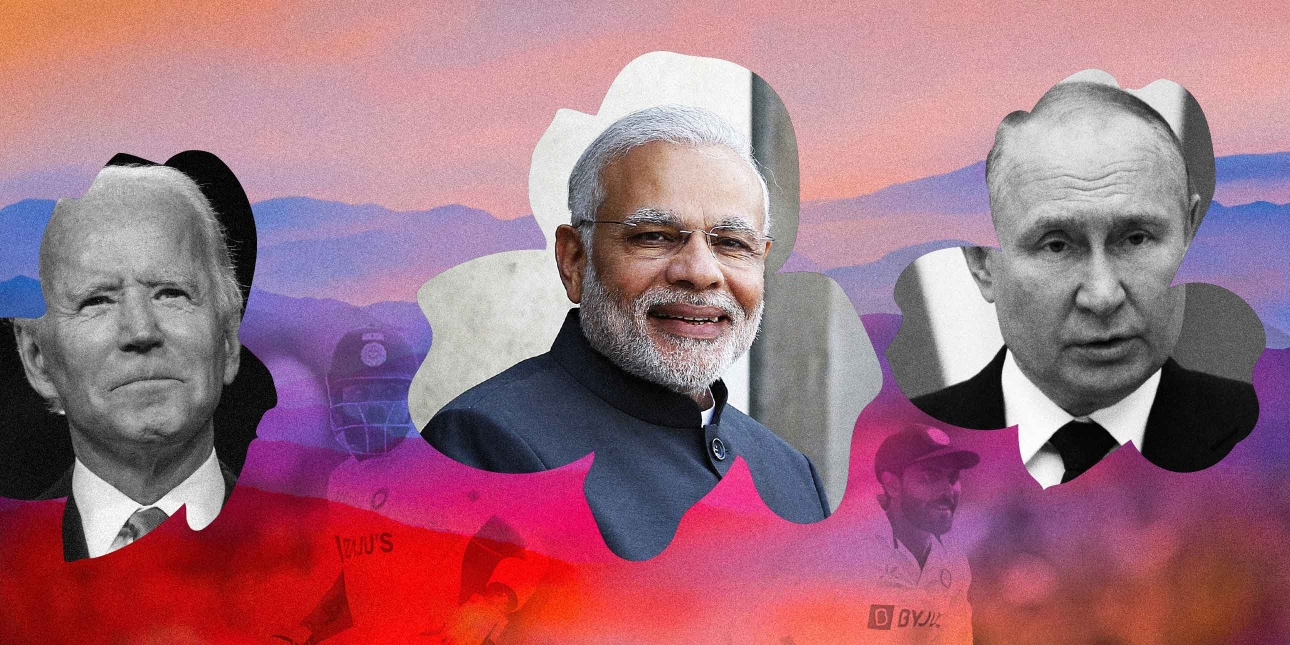Indian Summer
India's youthful population and growing economy have long appealed to Western firms. But could the country's geopolitical moves, sometimes out of step with the West, put that at risk, asks City AM editor Andy Silvester?
Tim Cook, the Apple chief, is a busy man. Whom he meets matters. So it was noteworthy, to say the least, to see the Silicon Valley giant take time out of his crammed schedule to meet Indian Prime Minister Narendra Modi in New Delhi, India in April. It was part of a push into the South Asian country that involves the company opening up its first specific Apple store in Mumbai, where the iPhone has only a three per cent market share despite a significant manufacturing presence.
Multinational giants looking enviously at India's 1.4bn-strong market and, perhaps more importantly, the almost half a billion who live in cities
It's a sign of the times, with more multinational giants looking enviously at the 1.4bn-strong market and, perhaps more importantly, the almost half a billion who live in cities, where both advanced technology and disposable income tend to be more present. The economy is ticking along with annual GDP growth of around six per cent, and the razzmatazz of the Indian Premier League cricket phenomenon is a strong reminder of the country's economic potential and young population. One cannot move in an Indian city of a decent size for posters advertising Deloitte, KPMG, EY and the other management and strategy consultancies that are piling into what is an increasingly profitable part of the world.
Raising global eyebrows
So all appears rosy - in some senses - but India's recent geopolitical moves should give some pause to those who expect India to move ever closer to Western economies. Since taking power in 2014, Narendra Modi has made quite the impression, and not just by renaming a cricket stadium after himself.
In recent years Modi has pursued an aggressive Hindu nationalist streak that has left many international watchers concerned; in revoking the ‘special status' of Kashmir he risked triggering that largely frozen conflict, and the 2019 Citizenship Act, which grants a pathway to Indian citizenship for Hindus, Sikhs and Buddhists from Afghanistan, Bangladesh and Pakistan but not Muslims, also raised global eyebrows. But it is India's recent willingness to buddy up with international pariah Vladimir Putin that has most concerned Western governments.
The share of India's oil imports from Russia has risen to 16 per cent, up from 2 per cent the year before.
Modi has made no bones about his willingness to take advantage of Russia's lack of popularity in the rest of the world to advance India's interests. The share of India's oil imports from Russia, at a time when most of the globe is turning it away, has risen to 16 per cent, up from 2 per cent the year before. India managed to prevent the G20 from referring to Putin's attack on Ukraine as a ‘war' at a global summit. And just a few weeks ago one of Vladimir Putin's closest allies, Nikolai Patrushev, met with Modi on the fringes of an Asian powers conference.
However, the recent G-7 summit held in Hiroshima, Japan, saw Ukrainian President Volodymyr Zelensky hold meetings with non-aligned countries, including India (along with Brazil and Indonesia), over the ongoing war to ask them to reconsider their position. This, coupled with a new wave of global sanctions on Russia - making it the most sanctioned country in the world - and a planned tightening of existing financial penalties to further constrain Putin's war effort could perhaps see a shift in Modi's thinking and approach.
Walking the tightrope
In the meantime, does Modi risk India becoming a global pariah? So far, the evidence suggests not, with the tightrope being walked effectively. Earlier this year Foreign Secretary James Cleverly described the relationship between India and the UK as being "stronger than ever". Cleverly will not be blind to the power of Modi-mania in Britain - not many Westminster politicians would draw a crowd of 60,000 to Wembley, as he did back in 2015 - but risks still remain that New Delhi could overplay its hand. Joe Biden said he thought India's response to the war in Ukraine had been "shaky" and a number of US diplomats, per The Atlantic, have been despatched for meetings with various parts of Modi's government to encourage a stronger response.
From an Indian perspective, the move to become Russia's oil partner of choice - at a far lower price than would have been paid previously - is part of an effort to supercharge the country's economy and lift millions out of poverty. If the West's response is confined to behind-closed-door grumbling and the occasional Biden quip, Modi is unlikely to be persuaded to alter course.
China tensions
Relationships with another neighbour - China - are also worth noting. Border clashes in the Himalayas in December brought to public attention the increasing tensions between the two rising Asian powers. For now, at least, there appears little chance of the conflict escalating; both sides have other fish to fry.
The more interesting question is whether businesses looking to ride the wave of Indian economic growth need to be concerned. Modi is many things, but he is not reckless; many will work on the theory that the balancing act he's managed for years will continue unabated and that the sheer scale and potential of the Indian market are both worth their commercial risk and too significant for Western powers to ever place this subcontinental power truly in the freezer. Could the dynamics of that bet change if Russian relationships strengthen further, or if China forces India to pick a side in the event of an attack on Taiwan? Well, that's why the big banks hire geopolitical risk analysts. They'll be earning their money this year.
.jpg&w=728&h=90&maxW=&maxH=&zc=1)

